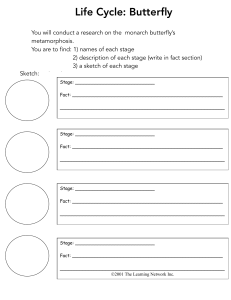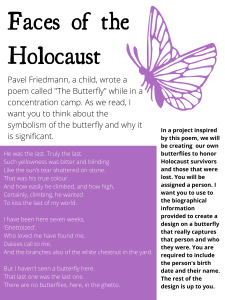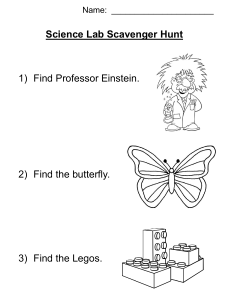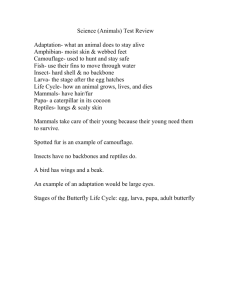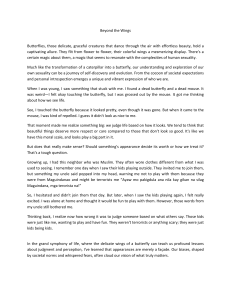Uploaded by
Pracheth Gullapalli
Butterfly Poem Analysis: Nature, Transformation, Curiosity
advertisement
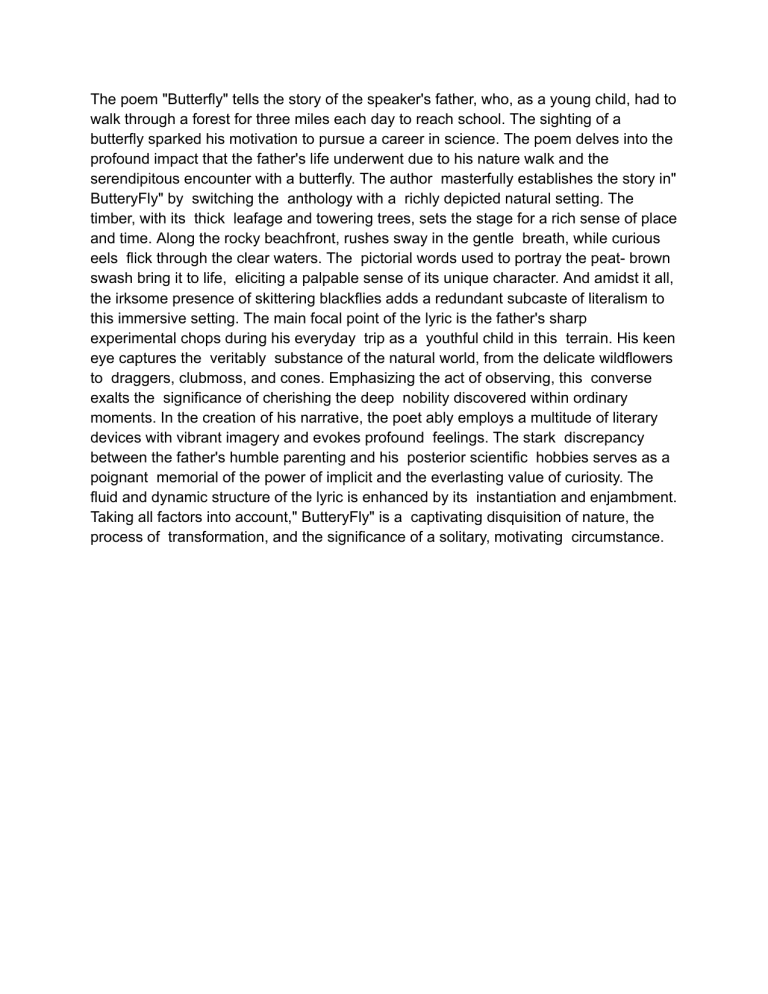
The poem "Butterfly" tells the story of the speaker's father, who, as a young child, had to walk through a forest for three miles each day to reach school. The sighting of a butterfly sparked his motivation to pursue a career in science. The poem delves into the profound impact that the father's life underwent due to his nature walk and the serendipitous encounter with a butterfly. The author masterfully establishes the story in" ButteryFly" by switching the anthology with a richly depicted natural setting. The timber, with its thick leafage and towering trees, sets the stage for a rich sense of place and time. Along the rocky beachfront, rushes sway in the gentle breath, while curious eels flick through the clear waters. The pictorial words used to portray the peat- brown swash bring it to life, eliciting a palpable sense of its unique character. And amidst it all, the irksome presence of skittering blackflies adds a redundant subcaste of literalism to this immersive setting. The main focal point of the lyric is the father's sharp experimental chops during his everyday trip as a youthful child in this terrain. His keen eye captures the veritably substance of the natural world, from the delicate wildflowers to draggers, clubmoss, and cones. Emphasizing the act of observing, this converse exalts the significance of cherishing the deep nobility discovered within ordinary moments. In the creation of his narrative, the poet ably employs a multitude of literary devices with vibrant imagery and evokes profound feelings. The stark discrepancy between the father's humble parenting and his posterior scientific hobbies serves as a poignant memorial of the power of implicit and the everlasting value of curiosity. The fluid and dynamic structure of the lyric is enhanced by its instantiation and enjambment. Taking all factors into account," ButteryFly" is a captivating disquisition of nature, the process of transformation, and the significance of a solitary, motivating circumstance.
